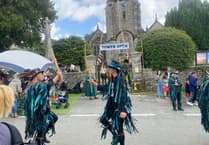MEASURES put in place to help secure a better future for Dartmoor's 3,000 ponies are already bearing fruit, according to a recent report by the Dartmoor National Park Authority.
Over the last 12 months, the Dartmoor Commoners' Council and the DNP have worked together towards the single aim of improving the lives of moorland ponies and to prevent the numbers dropping. Fifty years ago there were about 30,000 ponies on the moor.
Recently, markets have failed and pony keepers are finding it increasingly difficult to afford the animals upkeep.
The council is also implementing the mandatory removal of all foals on the commons between January 1 and April 1 and has made a voluntary request to pony owners not to keep more than ten mares and one stallion out on the commons during these three months. The measures should benefit pony welfare by adjusting winter grazing levels.
Under the new stallion regulation initiative, all new colts will have to stay off the commons for two winters and will then have to be inspected in March of each year before being allowed back.
'Conscious of the economic realities for pony keepers and of the public's huge affection for the pony on Dartmoor, the authority is pleased with the progress that has been achieved over the last 12 months,' said DNP chief executive Nick Atkinson.
'None of this would have been possible without the full support and co-operation of the pony keepers themselves.'
Dr Atkinson said the next stage of their work was to explore and develop markets appropriate to the new quality of ponies being reared.
'Through all of this work, the long-term intention is to marry welfare, use and purpose with economic worth, matching the numbers and quality of ponies for the future good of Dartmoor, the pony keepers, and the visitors who come to see them,' he said.



